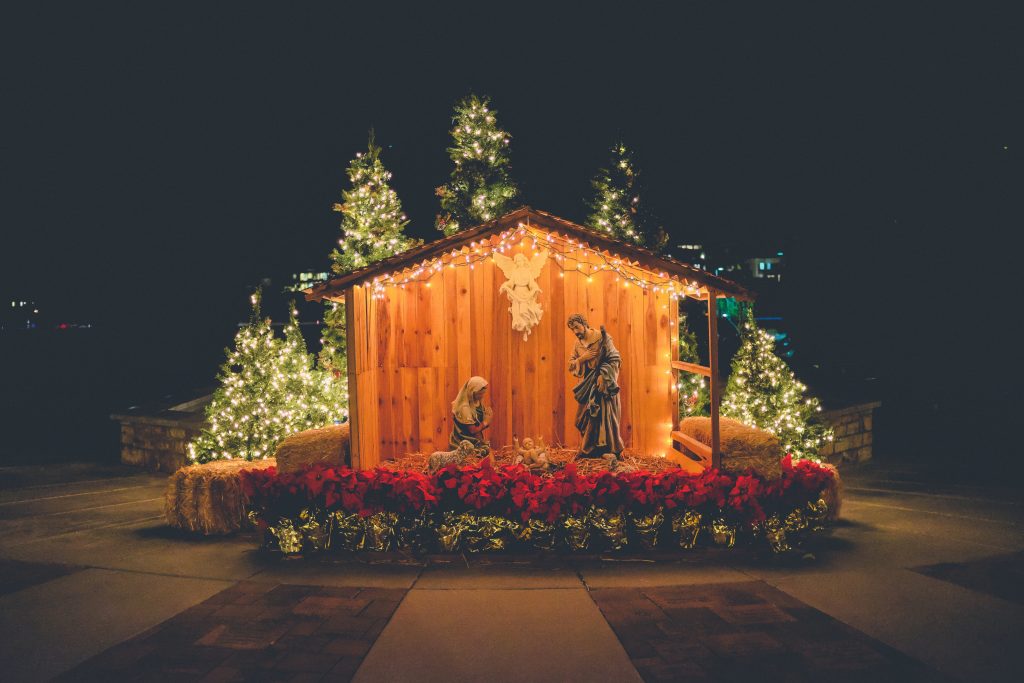
Part 1: Creation | Part 2: Covenant | Part 3: Marriage | Part 4: Turning the Page
As we’ve seen in this series, God has always wanted to dwell with his people. From the very beginning he made humans in his image and apparently walked with them in the Garden. Throughout the biblical narrative there are people who “walk with God,” and the storyline consists largely of God’s choosing a people for himself: first, a nation (Abraham, Moses, David) and then a spiritual kingdom, the church, which, following Jesus’ Great Commission, will take his story, and the opportunity for fellowship with him, to the ends of the earth.
We find ourselves in the process of fulfilling that Commission, waiting expectantly for his return. Though we don’t know when that will happen, we do know that it may happen at any time. We don’t know how far away the tape is in this race.
But one day he will come. Some Christians (amillennialists and postmillennialists) think that eternity will begin right then. Others, including me (premillennialists) think there will first be a thousand-year earthly reign of Christ, the Millennium, during which sin and death will still be operative, but righteousness and justice will prevail under the perfect King. And then, eternity.
The Bible doesn’t seem to have a lot to tell us about the eternal state—though it speaks much, in my opinion, about the Millennium. (My premill assumptions are showing here.) Most of what we can read about eternity is in the last two chapters of the Scripture, Revelation 21 and 22.
So I pose a question. Will this fellowship, this walking with God, his dwelling in the midst of his people—will that continue beyond time and into eternity? Is history just preparation for an eternal dwelling with God?
Let’s survey those two chapters.
After the Millennium (Re 20) and the Great White Throne judgment (Re 20.11-15), which ends with the “second death,” when “death and hell [are] cast into the lake of fire” (Re 20.14-15), the eternal state begins. And it begins with the presentation of the new heaven and new earth. Note the matrimonial language here: the New Jerusalem is “prepared as a bride adorned for her husband” (Re 21.2), and eventually an angel calls the heavenly Jerusalem “the bride, the Lamb’s wife” (Re 21.9). It’s no stretch to see this as a continuation of the marital language God has used to describe first Israel and then the church. This is the realization, the consummation, of that intimate relationship.
And how is it described?
The tabernacle of God is with men, and he will dwell with them, and they shall be his people, and God himself shall be with them, and be their God (Re 21.3).
After a description of the city, John says,
I saw no temple therein: for the Lord God Almighty and the Lamb are the temple of it (Re 21.22).
And again,
The throne of God and of the Lamb shall be in it; and his servants shall serve him: 4 And they shall see his face; and his name shall be in their foreheads (Re 22.3-4).
And finally,
The Spirit and the bride say, Come. And let him that heareth say, Come. And let him that is athirst come. And whosoever will, let him take the water of life freely (Re 22.17).
And there is our answer.
God dwells with his people not just for time, but for eternity.
That has always been the plan.
So the Bible is, in literary terminology, an inclusio: it begins and ends with the same theme of God’s desire to dwell with his people in the most intimate and eternal of relationships.
It will be done.
This Christmas season we’re reminded of the completeness of God’s commitment to this relationship, and the certainty that it will happen.
Immanuel.
